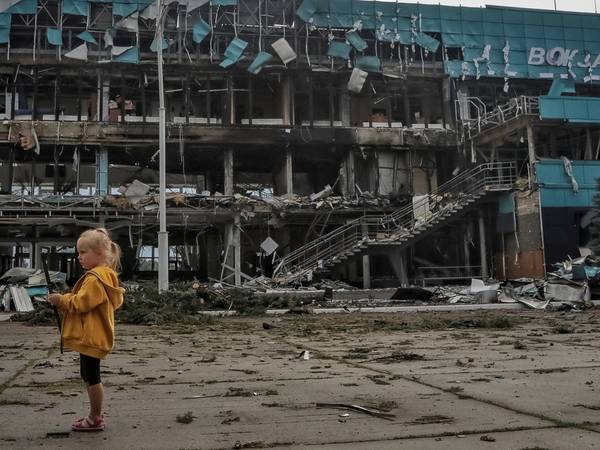The military collaboration between Iran and Russia has significantly intensified since the invasion of Ukraine, with Tehran delivering offensive weapons used against civilian targets.
The recent revelation by the Prana Network of Iran's clandestine arms deal with Russia, valued at $1.75 billion, has sparked concerns about its implications on global security and regional stability. Additionally, Iran's acquisition of the Russian S-300 air defense system in 2016, along with its forthcoming procurement of advanced Russian military aircraft, signals a significant milestone in their evolving defense partnership.
It's worth noting that under Resolution 2231, which endorsed the 2015 nuclear deal known as the Joint Comprehensive Plan of Action (JCPOA), Iran was prohibited from importing and exporting certain missiles, drones, and related technologies without prior UN Security Council approval. However, this resolution expired in October 2023.
This growing alliance has raised concerns about the possibility of Iran supplying precision-guided ballistic missiles to Russia following the expiration of UN sanctions. However, some analysts remain doubtful about Iran's willingness to provide Russia with cutting-edge weaponry, citing concerns about preserving its own military capabilities and its desire for international recognition as a responsible arms trader. Nevertheless, the covert arms agreement between Russia and Iran, alongside their deepening military cooperation, underscores the need for vigilance regarding their actions and their potential impact on both regional and global security dynamics.
Regarding Leaked documents. Theodore Karasik, Senior Advisor from Gulf State Analytics, believes that "This data reveals details of the Russia-Iran relationship regarding weapon systems, despite budget constraints. Despite differences, they collaborate closely, as evidenced by the recent meeting between Russian National Security Advisor Nikolai Patrushev and his counterpart Ali Akbar Ahmadian."
The impact of the arms deals between Russia and Iran on the Middle East
The arms agreement between Iran and Russia has the potential to escalate tensions in the Middle East, leading to increased regional military spending and arsenals. This heightened militarization not only threatens regional stability but also poses risks to American and allied forces when engaging with Tehran's proxies. Additionally, by bolstering Iran's ballistic missile capabilities and potentially supporting Russia's operations in Ukraine, the arms transfer raises concerns about international security and the likelihood of further destabilization. Moreover, the agreement could fuel a regional arms race, undermining efforts towards peace.
Dr. Ariel Cohen, Managing Director of the energy, growth, and security program at the International Tax and Investment Center, and a Senior Fellow at The Atlantic Council, has underscored the economic implications of Iran's arms sales to Russia, raising questions about Tehran's motives and the impact on the Iranian people. Concerns persist regarding the involvement of nuclear weapon technology, potentially further destabilizing the Middle East. Additionally, the exchange of advanced weaponry between Iran and Russia poses a significant threat to global security, necessitating careful international monitoring and regulation to prevent escalating conflicts and instability worldwide.
Challenges and Opportunities
Understanding the challenges of Iran's covert arms trade, particularly with Shahed-136 drones and Russian weaponry, is essential for assessing its impact and requires a nuanced understanding of geopolitical dynamics and risks. These challenges include the potential escalation of war, violations of international law and sanctions, threats to regional stability, and reputational risks for Iran as an arms dealer. However, there are also opportunities for economic gains and the growth of Iran's military industry, as well as the strengthening of the Iran-Russian strategic partnership.
In conclusion, the Iran-Russia arms trade underscores geopolitical maneuvers, with Russia deploying inexpensive drones like the Shahed-136 against Ukrainian forces. This highlights the need for international collaboration to regulate the arms trade and ensure accountability, mitigating the destructive effects of conflict and fostering peace in affected regions. Questions about Iran's responsibility for the harm caused by these weapons emphasize the importance of international oversight in managing arms transfers and addressing broader conflict ramifications, advancing principles of transparency, accountability, and peace in conflict zones.
